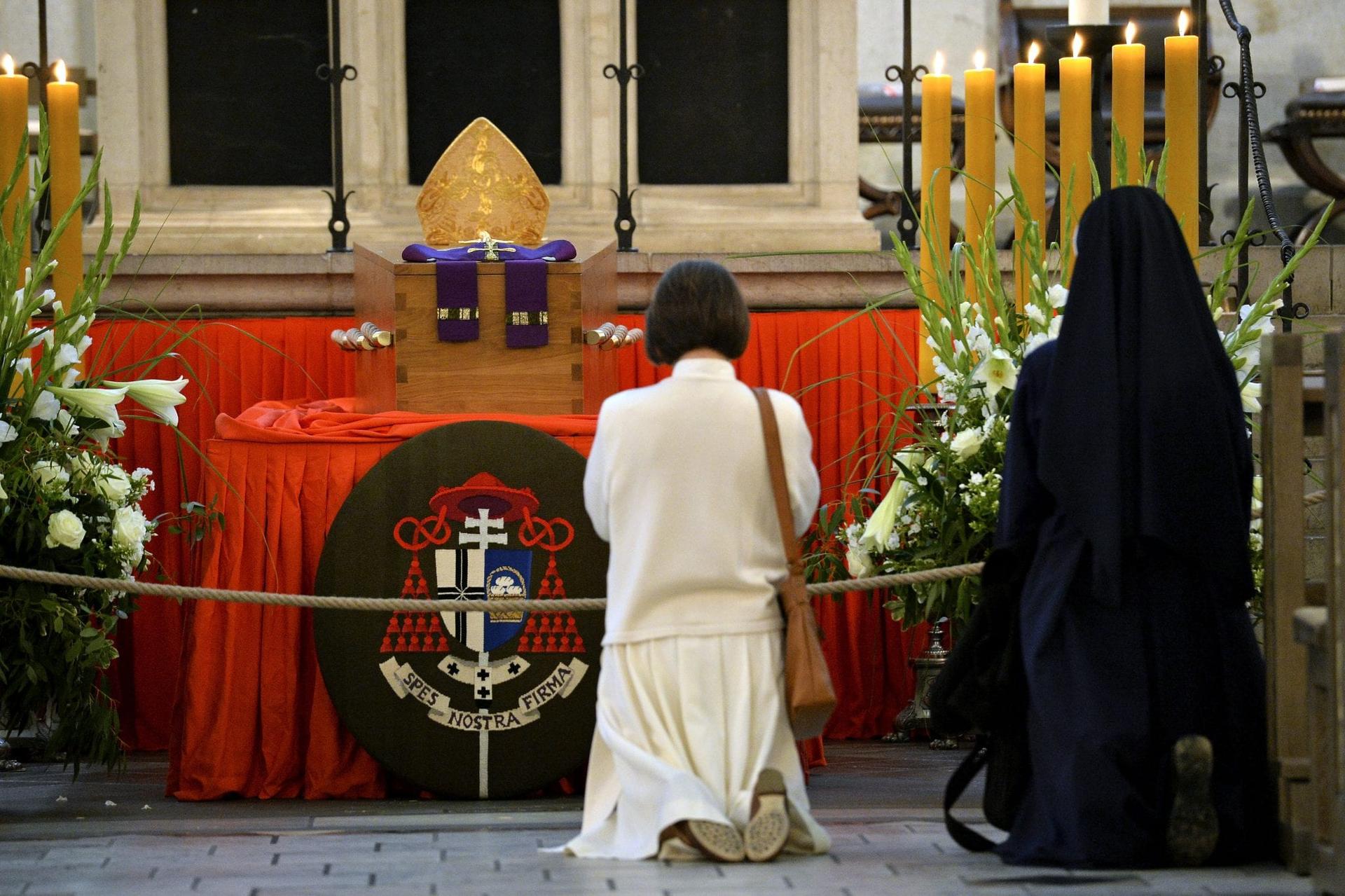ROME — Although he’s rarely broken his self-imposed silence since resigning from the papacy, Pope Emeritus Benedict XVI did so on Saturday to praise one of his closest friends, Cardinal Joachim Meisner of Germany, who was one of four cardinals who submitted a set of dubia, or questions, to Pope Francis about his document on the family Amoris Laetitia.
“When I heard of the death of Cardinal Meisner last Wednesday, I did not first want to believe it,” Benedict said in a message read by his long-time personal secretary, Archbishop Georg Gänswein. “The day before, we had talked with one another on the phone.”
Benedict described Meisner as a “passionate shepherd and pastor of souls.”
Recalling that last conversation, the pope emeritus wrote that he was impressed by Meisner’s “unhindered happiness, inner joy, and the confidence that he had found.”
He acknowledged that leaving his post in Cologne had been hard for Meisner, particularly for having to do so “in a time in which the Church especially needs convincing shepherds who resist the dictatorship of the Zeitgeist and live and think quite decisively from the faith.”
Yet what moved Benedict the most from the final period of his friend’s life was the fact that he had learned “to let go” and live with the “deep certainty that the Lord does not abandon His Church, even when sometimes the boat is filled almost to capsizing.”
Meisner, 83, died on July 5, while he was on vacation in Bad Füssing. He was the former archbishop of Cologne, in Germany, where he served from 1989 to 2014, when Francis accepted his resignation. Before then, he had lead the diocese of Berlin since 1980.
RELATED: Cardinal Meisner, one of the ‘dubia’ cardinals, dies at 83
Long perceived as Germany’s leading conservative voice, he was among the four cardinals who last year presented Pope Francis with five “dubia” or questions regarding his apostolic exhortation on the family Amoris Laetitia.
Benedict and Meisner were close friends, to the point that the late Archbishop of Cologne, a little over a year into Benedict’s papacy, felt comfortable enough to try to persuade the pontiff to change his secretary of state, Cardinal Tarciso Bertone.
“He looked straight in my eyes,” Meisner recalled in a 2013 interview with Frankfurter Rundschau, “and told me: ‘Listen to me carefully. Bertone will remain! Enough, enough, enough.’ After this episode, I never touched on this issue again.”
Meisner was also quoted as saying: “This is typical of the Ratzingers: they are loyal people. It is a behavior which does not make their life easier.”
Benedict’s note for the funeral was made available by the diocese of Cologne in Germany, and translated by Bishop Michael Campbell, of Lancaster, in the United Kingdom.
The emeritus pope stayed away from controversies, instead insisting on Meisner’s happiness and serenity, which he wrote came from two things in “this final period”: Seeing young people, particularly young men, experiencing the “mercy of forgiveness” through the Sacrament of Penance, and “the perceptible increase in Eucharistic adoration.”
Recalling the last minutes of Meisner’s life, who was found in his room after he didn’t appear for morning Mass, Benedict noted that the breviary had slipped from his hands: “He died while praying, his face on the Lord, in conversation with the Lord. The art of dying, which was given to him, again demonstrated how he had lived: with his face towards the Lord and in conversation with him.”
The requiem Mass took place in a crowded Cologne’s cathedral. The ceremony was led by his successor in the diocese, Cardinal Rainer Maria Woelki. The homily was given by Cardinal Péter Erdő, Archbishop of Esztergom-Budapest.
Pope Francis too sent a message to the funeral, which was read by the papal representative in Germany, Archbishop Nikola Eterovic. He praised Meisner for his “intrepid commitment” to the Church and the faith, and for his efforts in the reconciliation of Eastern and Western Europe.













